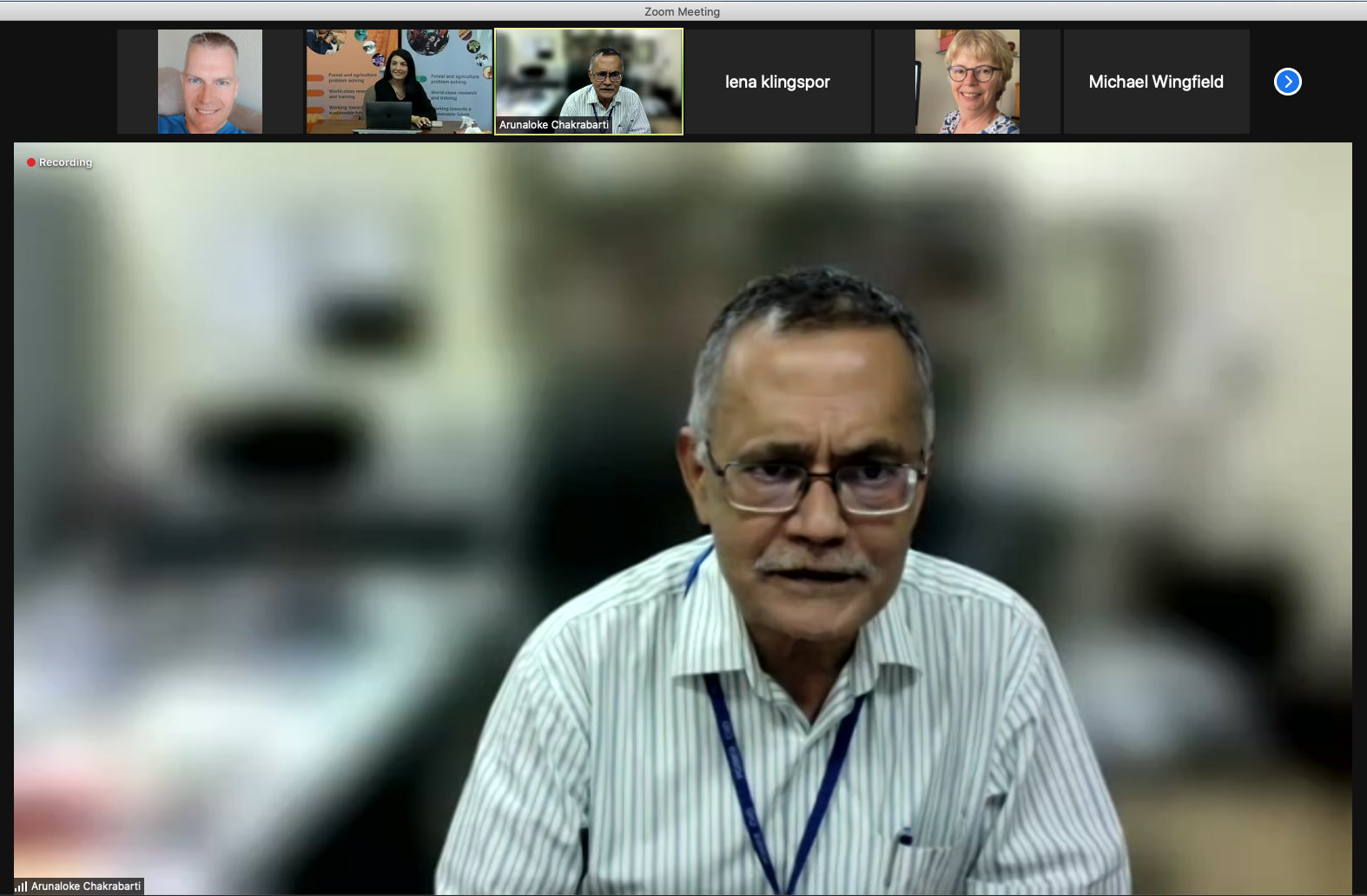The problem of CAM in India highlighted at the August FABI International Seminar 2021-09-02
This month’s FABI International Seminar on 26 August moved into the medical mycology sphere casting the spotlight on the devastating impact that COVID-19 associated mucormycosis (CAM) is having on the Indian population. Mucormycosis is a devastating fungal disease with high morbidity and mortality, causing serious healthcare problems in the Indian population especially among untreated diabetics. In his presentation “Mucormycosis in India”, Professor Arunaloke Chakrabarti of the postgraduate Institute of Medical Education and Research in Chandigarh in India addressed this issue. He explained how the present outbreak of CAM showed many new symptoms and made an unprecedented impact in healthcare in the country, with a mortality rate exceeding 40%.
Though the reason for the outbreak is not clear, environmental factors, diabetes, high steroid therapy, and the COVID-19 virus are considered to contribute to disease development. The outbreak has posed a formidable challenge to the country’s health sector due to limited awareness, and the low availability of anti-Mucorales drugs.
The Mucorales is the largest and best-studied order of zygomycete fungi comprising 55 genera with 266 species, 28 of which are known human pathogens. They are typically found in decaying organic substrates from freezing Antarctica to hot geothermal soils.



